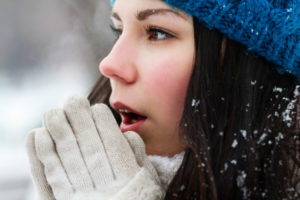Many people are increasingly concerned about seasonal allergies and when it starts. But did you know that it depends on the things that trigger your allergy and where you’re situated?
For those who have hay fever, or otherwise known as seasonal allergies, merely as simple as pollens coming from trees can cause them to experience allergic reactions. Even ragweed can cause allergic reactions to some people, too. Same with other plants, it also releases pollen, which happens during fall and summer. So, it depends on your home’s location.
Learning more about seasonal allergies
Experts say that various parts of the country have specific pollen seasons. In the country’s western area, a variety of mountain cedar is one of the primary sources of pollen coming from the trees, and it happens from December up until March.
Meanwhile, the southwestern area is where grasses tend to produce pollens at a much more extended period and often occur during fall. Russian thistle is one of the most common types of grass that provides an abundant amount of pollens during this time.
Most people also have different reactions when they get exposed to allergens. So their seasonal pollen allergies can vary from spring up to fall.
Signs and symptoms of hay fever If you’re suffering from seasonal allergies, you may experience an itch on your nose and the back of your throat. You’ll also experience a bit of discomfort in the roof of your mouth and can also cause your eyes to get itchy.

Then, you’ll soon experience a runny nose with a liquid discharge that’s quite clear. You’ll also feel your nose becoming stuffy. Also, your sinuses will end up the same, which can cause you to experience headaches and even sinusitis. Sneezing is also a part of the common symptoms, too.
Meanwhile, other people experience their eyes becoming watery, which can sometimes be itchy. You’ll also experience redness on the eyes as well as eyelids becoming inflated. Other symptoms also include having difficulty sleeping and even coughing.
Treating hay fever
There are various types of treatment available for those with hay fever. You can ask an experienced sinus specialist to know which ones are suitable for you.
If you’re having difficulty in your breathing or nasal area, a corticosteroid nasal spray can be helpful. Although this medication has minimal side effects, it’s still best to consult a doctor for it.
Meanwhile, the most popular type of medication to treat nasal symptoms are antihistamines. Most people use it together with a decongestant and usually gets consumed by mouth.
If you’re having eye symptoms, merely washing your eyes using eyewashes can help. But if it’s already becoming too irritating, then using eye drops is a better option. That’s because it contains antihistamines and medicine that restricts the blood vessels, which makes the medication even more potent.
Having hay fever shouldn’t restrict you from spending your day outside. If you feel any of these symptoms, then it’s best to seek professional help to get it treated.














